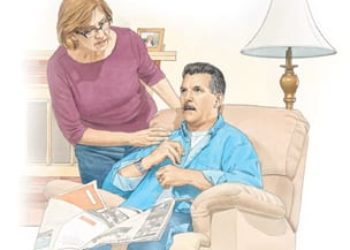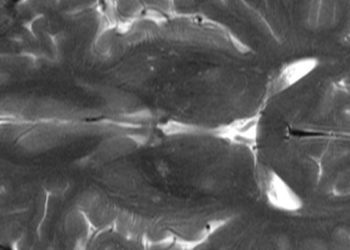Lorazepam not superior to diazepam for pediatric status epilepticus
Image: PD
1. Lorazepam did not significantly improve odds of status epilepticus cessation compared to diazepam.
2. Diazepam and lorazepam groups demonstrated similar rates of required assisted ventilation.
Evidence Rating Level: 1 (Excellent)
Study Rundown: Diazepam is one of the mainstays of treatment for status epilepticus in the pediatric population. However, a number of studies have shown lorazepam to be a more efficacious treatment for status epilepticus. The results of these studies are questionable due to small sample sizes and a lack of generalizability. This randomized control study sought to determine whether lorazepam is safer and more efficacious when compared to diazepam for the treatment of status epilepticus.
The researchers concluded that lorazepam was not more efficacious than diazepam for the treatment of pediatric status epilepticus; however, lorazepam was more likely to cause sedation Because the study was designed as a superiority trial as opposed to a noninferiority trial, it is important to note that diazepam and lorazepam cannot be concluded to be equivalent. This study is aided by its randomized active-control trial design and protocol for standardized drug administration. Limitations include the unpredictable nature of the emergency room leading to protocol deviations and electroencephalogram monitoring was not used.
Click to read the study in JAMA
Relevant Reading: Intramuscular vs. Intravenous Therapy for Prehospital Status Epilepticus
In-Depth [randomized clinical trial]: This study randomized 273 (140 on diazepam and 133 on lorazepam) patients at 11 pediatric hospitals in the United States. Status epilepticus ceased within 10 minutes, without recurring within 30 minutes, in 101(72.1%) diazepam patients and 97(72.9%) lorazepam patients (absolute efficacy difference, 0.8%; 95%CI, -11.4% – 9.8%). Assisted ventilation was required in 16.0% of the diazepam group and 17.6% of the lorazepam group. Rates of recurrent generalized convulsions within 60 minutes were 10.9% for diazepam and 10.3% for lorazepam. The mean time to termination of status epilepticus was 2.5 minutes in the diazepam group and 2.0 minutes in the lorazepam group (p= .80). There was a stasticially significant difference in the incidence of sedation occurring in 50% of diazepam patients and 66.9% of lorazepam patients (absolute risk difference 16.9%; 95% CI 6.1%- 27.7%).
More from this author: Reducing surgical complications may increase costs,Protected sleep periods improve intern alertness and sleep duration,ADHD medication decreases rates of criminality in ADHD patients,Low dose aspirin shows net clinical benefit in patients with first unprovoked venous thromboembolism, Rare TREM-2 mutation implicated in Alzheimer’s Disease
©2012-2014 2minutemedicine.com. All rights reserved. No works may be reproduced without expressed written consent from 2minutemedicine.com. Disclaimer: We present factual information directly from peer reviewed medical journals. No post should be construed as medical advice and is not intended as such by the authors, editors, staff or by 2minutemedicine.com. PLEASE SEE A HEALTHCARE PROVIDER IN YOUR AREA IF YOU SEEK MEDICAL ADVICE OF ANY SORT.





